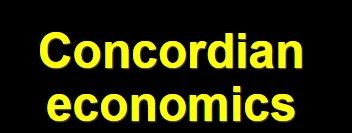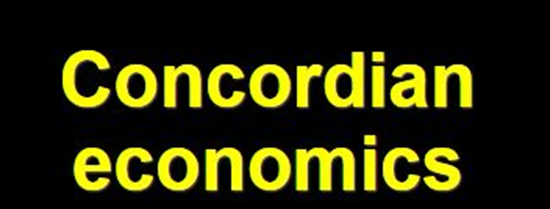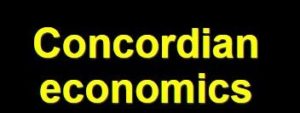A Revision Of Keynes’ Model: The Roots Of Concordian Economics
Revised: 18 June 2023.
The paper on Keynes is brilliant.
. . . . –Prof. John C. Medaille

Revised: 18 June 2023.
The paper on Keynes is brilliant.
. . . . –Prof. John C. Medaille

Surely, there is a reason why, in writing the General Theory, Keynes was in search of “a theory of output as a whole.”1 Without it, one cannot understand money, banking, and the economic process.

An immediate danger, the danger of nuclear holocaust, can be met with an efficacious solution, a grand design. President Biden, it is suggested, can offer the end of the dollar hegemony, a great desire of President Putin, for an end to the war in Ukraine. This bargain can be constructed out of the monetary policy that results from a New Neoclassical Synthesis extended to the creation of the Bancor International Order (BIO). Any nation that follows Three Rules for the creation and distribution of money, three rules of economic justice, can be certified by the IMF to become a member of BIO, provided it ceases any belligerent action.

Illustration 1. Nuclear Armageddon.
Image by Pete Linforth from Pixabay
To me, the best economists over the past three centuries are Adam Smith in the 18th century, Karl Marx in the 19th century, and John Maynard Keynes in the 20th century!
Both Keynes’ and Hayek’s shared the belief that there existed a need to revisit the economic discourse that began in the thirties and involved their respective analyses of growth and the business cycle. This paper looks at these topics and discovers some of the deep methodological, cultural, substantive, and ideological roots of the chasm that existed between Keynes and Hayek. The reasons for the chasm are understood with the aid of Concordian economics, a framework of analysis through which prism both Keynesian and Austrian economists might finally have a serious conversation with one another.

I have written about money woes issues separately in the past on a variety of venues, but consistently on Econintersect and Talk Markets. Let me now gather these thoughts together. A confluence of impelling crises requires this synthesis. Here I argue for the institution of a global currency – the Bancor – first proposed by John Maynard Keynes at Bretton Woods in 1944.
